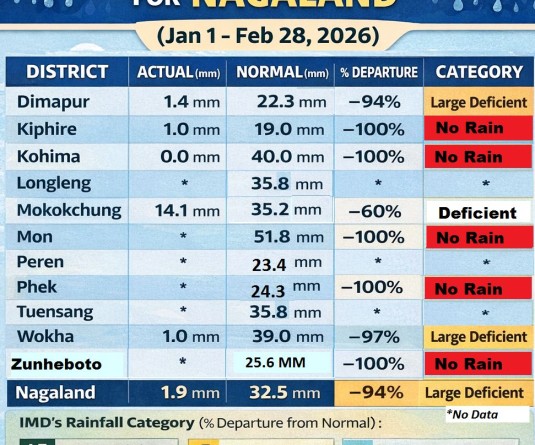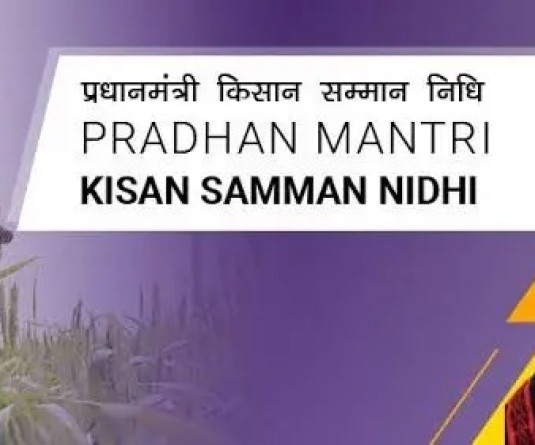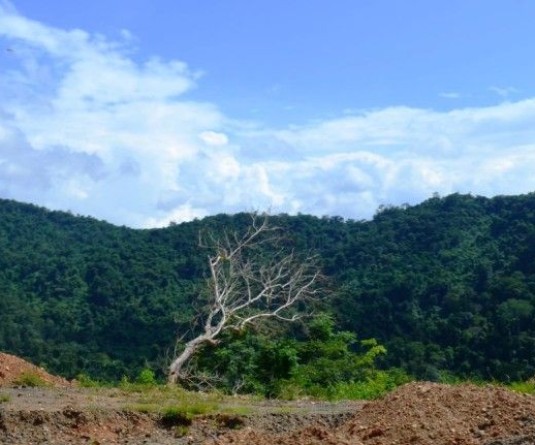Participants of the capacity development training for JFMC members on Eco-Tourism/Community Tourism in Nagaland at Hotel Japfü, Kohima on March 20. (Morung Photo)
Our Correspondent
Kohima | March 20
In a follow up of the recently concluded workshop on “evolving strategies for Forest conservation”, a three days capacity development training for JFMC members on Eco- Tourism/Community Tourism in Nagaland commenced at Hotel Japfü, Kohima on March 20. It was organized by the Department of Forest, Environment, Ecology & Wildlife in collaboration with the Regional Centre National Afforestation and Eco-Development Board (RCNAEB), Shillong.
Addressing the inaugural function, chief guest I. Panger Jamir, Addl. PCCF remarked, “Nagaland has been dubbed the Switzerland of the East because of its scenic beauty and steps should be initiated to promote eco-tourism.” Adding that Nagaland offers better scenic beauty than many prominent eco-tourism destinations in the country, he called on villages and local communities to join hands in promoting eco-tourism in the state.
Defining eco-tourism as a part of tourism, which concerns conservation of environment, and tourism which is ecologically sustainable Supongnukshi, DFO, Wokha Division highlighted the Concept of eco-tourism strongly linking it to livelihood through activities like trekking, camping, picnicking, scenic drives, mountain biking.
Stressing on the need for community based tourism managed by communities keeping in account environmental, social and cultural sustainability he explained how eco-tourism creates environmental awareness, fostering respect for cultures and human rights in addition to benefiting the economic development and political empowerment of local communities. “Local community should be involved in leading economic development by identifying conflicts between the resources used and means of livelihood, involving the younger generation so that they also can be aware of the developments,” he said.
DFO, Peren Division, Samuel speaking on eco/community and rural livelihood generation remarked, “The concept of eco-tourism is very new to the state, it is still at a nascent stage. With an area of 7000-9000 sq kms under jhum cultivation and 500-1000 sq kms cleared every year, jhum cultivation poses a serious threat to environment conservation in the state and eco-tourism should be used as a tool to conserving the environment.”
With travel and tourism becoming the largest business sector globally, Samuel stated how Nagaland could become an eco-tourism hotspot attracting thousands of tourists with its scenic beauty, which in turn could bring about huge economic benefits to the local communities who depend mostly on Agricultural farming as their means of livelihood.
The first day of the training also witnessed representatives from RCNAEB, Shillong highlighting information on framing guidelines for starting and boosting eco-tourism while an analysis on the potential of eco-tourism in Nagaland and an analysis of the eco-tourism sector in India were presented by Zuthonglo Patton, ACF Wokha and Dr. Atsase Thongtsar DFO, Tuensang Division respectively. Speaking to our Correspondent Temjenwabang DCF, State Forestry stated that a panel discussion will be held on the third and final day of the training, March 22, wherein proposals from the discussion would be forwarded to both the Central and State Government.






